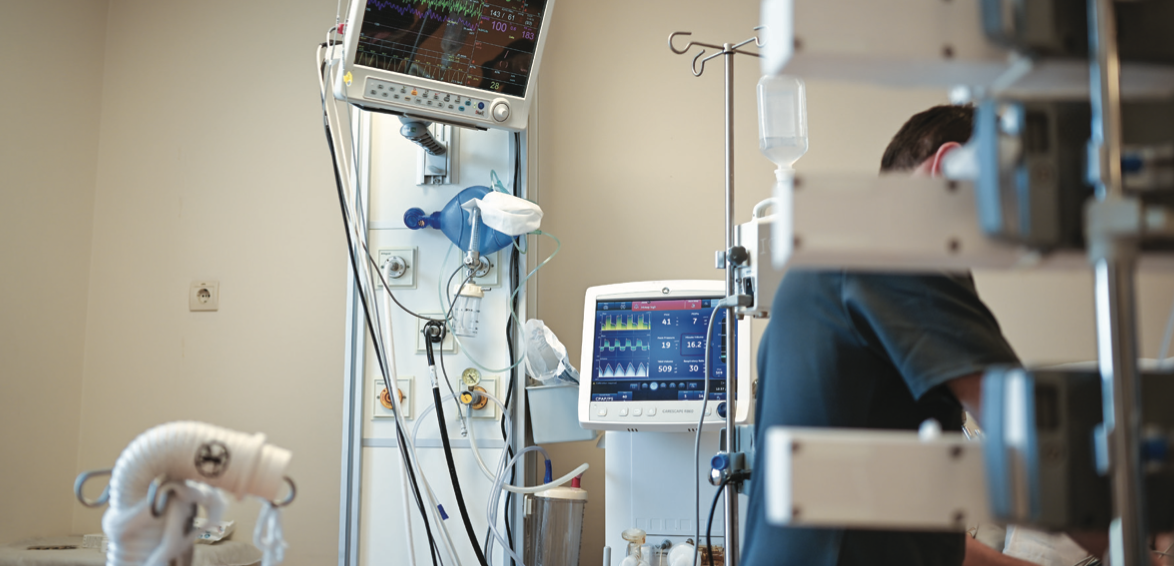Prior to 2003, the healthcare system in Iraq was plagued by war, and it has struggled to recover in the subsequent political instability following the liberation process. The system is facing momentous challenges due to the long-term shortage of supplies, attrition in the number of medical staff, and decaying infrastructure, all of which are bringing the system to a breaking point exacerbated by a rapidly expanded population.
The situation grew worse after 2014, when ISIS occupied large swathes of Iraq and destroyed many hospitals and healthcare facilities. The healthcare system in the Kurdistan Region has also suffered from the weaknesses and failures of the broader system in Iraq. Despite all this, the city of Zakho in the Kurdistan Region, which has made tremendous positive strides in healthcare, presents a story of willpower and strong leadership that kindles hope for a much better future.

Visionary leadership
The progress on healthcare in Zakho was not an accident; it resulted from conscious planning and an unrelenting commitment toward building better healthcare. Having realized the size and scope of the problem, the independent administration in Zakho made concrete plans to overcome the shortcomings in healthcare that had plagued the city for so long.
To start, the city of Zakho established a board of healthcare professionals to craft a strategy to turn things around. Two foundational pillars directed the plan. The first was to reduce the need for patients to leave the city to seek medical care elsewhere. Previously, residents suffered an additional emotional and financial burden in having to travel considerable distances just to get treatment. To deal with this problem, the board’s plan aimed to upgrade local healthcare facilities, obtain new medical technologies and equipment, and attract skilled healthcare professionals. These efforts have already started to bear fruit, as the numbers of residents leaving the city for care has fallen by more than 50%.
The second pillar of the board’s plan was to attract patients from outside the city, to make Zakho a healthcare destination by establishing key facilities such as the city’s liver transplant center. This ambitious undertaking, which is still underway, could transform Zakho into a hub of medical services and bestow indirect benefits beyond the healthcare system, such as value-added growth and the development of the city’s economy and reputation.
Continued financial support is essential to realizing these goals, of course, but the signs of growth are encouraging. Permission has been granted, for instance, to attract patients from surrounding areas to receive positron emission tomography scans and treatment at the liver transplant center.
However, these positive inroads do not mean that the healthcare needs of Zakho’s residents – or of the Kurdistan Region as a whole – are being met. Much remains to be done to ensure access to quality healthcare for all residents, but the administration remains conscious of such oncoming challenges and committed to strengthening its efforts.

Zakho as model for the region
The success story of Zakho’s initiatives in healthcare is inspirational for the Kurdistan Region, and its plan could be adopted as a model by other cities facing similar challenges, most notably in developing local health services and capacity-building.
One of the most critical lessons learned from the plan and its implementation is that local leadership and community involvement are essential ingredients for the development of local initiatives. The healthcare initiatives in Zakho are characterized by a combination of intimate knowledge and firm resolve to see them through to completion, which ultimately produces effective and sustainable solutions.
The healthcare success in Zakho testifies to what can be achieved with vision, strong will, determination, and collaboration. With so much more yet to be done, Zakho’s progress has created a template to inspire the Kurdistan Region in healthcare. It can also serve as a foundation upon which the future of the region is built. Sound planning can increase access to quality healthcare, reduce socioeconomic inequalities, and help nurture the ambitions of its people.
Nawfal Rasheed Hussein is a professor of infectious diseases, currently serving as the Dean of College of Medicine, Zakho University.

